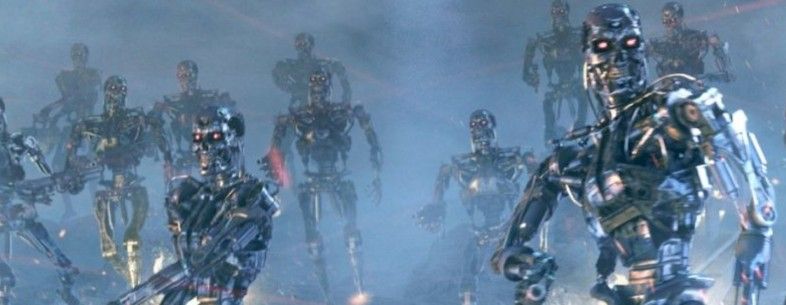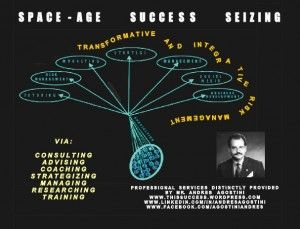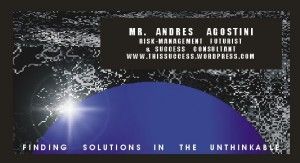This is a personal yet summarized and copyrighted P.O.V. that is professional, thorough and complete. This independent exploration is based on 30 years of practical experience and pragmatic expertise.
When I was 25 I was fully introduced and indoctrinated on worldwide Royal Dutch Shell’s scenario-planning methodology by Shell’s nationalized company Maraven. That introduction and indoctrination came through the kind deeds and executive decision of and by Maraven President, Dr. Carlos Castillo and the high-ranking strategic planners under his command.
The view and application of scenario-planning methodology by Maraven, as well as the inherent several-weeks training to me and others, also included all theoretical and practical quality-assurance and continuous-improvement prescriptions as posited by: Dr. W. Edwards Deming, Dr. Joseph Juran, Mr. Bill Conway, U.S. Navy, Kaisen and Hitachi.
With serious quality assurance and continuous improvement, one must exercise (like in scenario-planning contexts) great foresight and learning in advance in order to eliminate forthcoming “defects” or “flaws,” leaving leeway to countermeasure unknonwables.
All of my Maraven training included all of the preceding. Maraven was a created and an acculturated full-scope petroleum company by Shell and then under the absolute tutelage and management control of state-owned PDVSA (Citgo’s parent company).
Maraven was affluently thriving in worldwide markets while applying scenario-planning methodology as it was exactly conceived, designed and executed by Pierre Wack (an unconventional French oil executive who was the first to develop the use of scenario planning in the private sector, at Royal Dutch Shell’s London headquarters in the 1970s.)
Wack is the father of scenario planning in the private sector. For more details on this noted Guru, go to the Economist at http://www.economist.com/node/12000502 .
Wack’s public writings are meager and kept under the intellectual ownership of Shell. Wack’s methodological heir was Honorable Mr. Peter Schwartz, a previous Shell executive, the former Chairman of Global Business Network (www.gbn.com) and author of the groundbreaking book on scenario planning: “…The Art of the Long View: Planning for the Future in an Uncertain World…” (ISBN-13: 978–1863160995).
Wack and Schwartz are the greatest proponents of 3-scenario analysis. In my case, I institute “…hazard scenario planning…” and the number of plausible and implausible outputted thought-through “outlooks” (scenarios) are only limited by the designated budget by the Client.
I am going to explain what an “ouput” means in Systems Engineering. You have the Systems Transformational “Box,” throughputting (marshaling) from “known inputs” into “desirable outputs” (from sustainable successful outcomes into fiscally sound and continuous growth).
BUT, FOR A LONG TIME UNTIL YEAR 1999, I HAD A REVOLVING QUESTION: WHERE DOES THE EXACT AND MOST UNDERLYING GENESIS OF SCENARIO PLANNING REALLY COME FROM? EXACTLY, WHAT IS THE OUTRIGHT ORIGIN? When I study contemporary authors I always wonder if I can find the actual “root” philosopher, scientist and thought leader that first and originally brought about an idea, notion, maxim, theory, approach or breakthrough.
For instance, former U.S. Secretary of State and conspicuous American self-help author Napoleon Hill got his first name and success tenets after and from (respectively) Napoleon Bonaparte. I research the works by the original ones first and then I might check out the works by the contemporary versions afterward.
COMING BACK TO THE MAIN SUBJECT MATTER, I finally founded out that scenario planning was developed by the U.S. during the 1950’s and while this nation was encountering great existential challenges, threatening the country’s National Security doctrine as a direct result of the Cold War (1947–1991).
In consequence, I knew the exact and primordial, in-all-truth root and understood that DoD (1789 — present), DARPA (1958 — present), NASA (1958 — present) and Military-Industrial Complex (1961 — present) and other agencies and private contractors (including Skunkworks ones) were the founding fathers of advanced scenario-planning methodology.
Many scientists and engineers worked extremely hard at it, including NASA’s Dr. Wernher von Braun[1] and a plethora of elitist scientists (chiefly into Applied Physicists and Aerospace Engineers) collaborating with him. Elites can sometimes serve the public interest at large handsomely. But the gravest inflection point came by the Sputnik Crisis (also known as the “Sputnik Moment,” that is: a large Geo-strategic surprise). Many companies go under because of the strategic surprises inflicted by them either by smarter competitors or novel technologies in the hands of contrarian business enterprises.
From this point onward, one finds the salient research by RAND Corporation’s polymath futurist Herman Kahn (February 15, 1922 – July 7, 1983), also known as “…Dr. Strangelove…” To give you an idea on Kahn’s intellectual mind-set style, please check these clear-eyed assertions by him: “…I’m against ignorance… I am against the whole cliché of the moment… I’m against fashionable thinking… I’m against sloppy, emotional thinking…” [2] .
Comparatively and interestingly enough, the United States Secretary of Defense Donald Rumsfeld argued, “…Reports that say that something hasn’t happened are always interesting to me, because as we know, there are known knowns; there are things we know that we know. There are known unknowns; that is to say, there are things that we now know we don’t know. But there are also unknown unknowns – there are things we do not know we don’t know…”
But many years before the “… unknown unknowns…” conjecture by Rumsfeld, Khan was the ultimate pioneer in superseding “…the unthinkable…” This by Khan is one of the pillars of Transformative and Integrative Risk Management and The Future of Scientific Management, Today!
He did offer a theoretical body and practical and downright mode of approaching its theory. The most important global institutions of the world, into profit or not, are into rigorous “…the unthinkable…” discerning, beginning with those of us into advanced beyond-insurance risk management and strategy.
Let’s explore Khan’s background now. Wikipedia’s citation [3] on “…the unthinkable…” polymath futurist is extremely educational. An excerpt of this citation indicates:
“…Herman Kahn (February 15, 1922 – July 7, 1983) was a founder of the Hudson Institute and one of the preeminent futurists of the latter part of the twentieth century. He originally come to prominence as a military strategist and systems theorist while employed at the RAND Corporation. He became known for analyzing the likely consequences of nuclear war and recommending ways to improve survivability, making him an inspiration for the title character of Stanley Kubrick’s classic black comedy film satire Dr. Strangelove.…Kahn’s major contributions were the several strategies he developed during the Cold War to contemplate ‘the unthinkable’ – namely, nuclear warfare – by using applications of game theory. …Most notably, KAHN IS OFTEN CITED AS THE FATHER OF SCENARIO PLANNING…”
CONCLUSIONS:
Given all of the prior, I understand and summon the following:
1.- Scenario planning, also called scenario thinking or scenario analysis, is a strategic planning method that some organizations use to make flexible long-term plans. It is in large part an adaptation and generalization of classic methods used by military intelligence, government agencies and entities, NGOs, business enterprises and supranationals. Nonetheless, scenario planning as per Wack and Khan is breathtaking but in itself does not suffice in contemporary times.
2.- Along with item “1.-” before, there is also the concomitant application of 2.1.- Systems Theory, 2.2.- Game Theory, 2.3.- Wargaming Theory and 2.4.- Many other modes of practical strategic thinking and strategic execution. By example, Game Theory and Wargaming Theory ─ both under the Systems Thinking Approach ─ are extremely well addressed by Dr. Bruce Bueno de Mesquita, PhD.
You may wish to explored his book: “The Predictioneer’s Game: Using the Logic of Brazen Self-Interest to See and Shape the Future” (ISBN-13: 978–0812979770).
To me Napoleon Bonaparte is the greatest Systems Thinker ever beyond any epic military campaign. If you are hesitant about it, please ask systems engineers, physicists and other scholars and managers, as well as prominent historians. 80% of the teachings by Bonaparte are re-taught in all U.S. Military Academies. In my case and as per my own experience, NASA-beloved Leonado Da Vinci’s publications can be an over-learning devices for the radiant prepared-mind crafting lucid scenarios irradiantly.
3.- With “1.-” and “2.-” in place, there is also the application of Compound Forecasting without the ruling out of the vast computing calculation and transformation from narrative data into numerical data.
I have many professional reasons to state that I use 70% of Qualitative Analytics and 30% of Quantitative Analytics. Algorithms don’t outsmart the biological brain yet. By year 2000, before the Dawn of Strong Big Data, the Science Applications International Corporation (SAIC) CEO, Mr. Roger Brown and me were experimenting with seizing an optimal computerized reading pertaining to the “…success-likelihood ratio…” of a major business initiative to be jointly launched by our respective interests. This was another way of “futuring” that resulted exceedingly interesting and educational back then.
4.- In addition to all posited in “1.-”, “2.-” and “3.-” above, it is, too, highly advisable the concurrent implementation of other practical methodologies of and by 4.1.- Futures Studies and 4.2.- Foresight Research. There are several proprietary approaches that cannot be disclosed here.
5.- All numbered items above and in a rogue yet subtle search and recursive exploration of the totality of the whole (by holistic means), everything there must be seamlessly coalesced, integrated and instituted in accordance with Systems Thinking with the Systemic and Systematic Applied Omniscience Perspective as it is understood both by Applied Engineers and Physicists. Said “Omniscience” as it is chiefly understood by “Exact Science” Scientists.
All stakeholders always institute all the approaches hereby in order to avoid disruption potentials and to bring problems under optimal control. One of the world’s best and more authoritative examples is NASA and everything by it. For decades, NASA has been developing beyond-insurance risk management technologies and services for its own initiatives, projects and missions, as well as for august global corporations.
In the Summer of 2013, an American group of oil-and-gas corporations that operate globally asked NASA for a “…Space-Age Risk Management…” service to them as it was made official in a NASA own Press Release at http://www.nasa.gov/centers/johnson/news/releases/2013/J13-014.html
Kindly please remember that Risk Management is neither taking calculated risks in Wall Street’s (or any stock market), nor managing “challenges” by insurance and reinsurance companies only. Beyond-Insurance Risk Management is, in all actuality, OPTIMAL MANAGEMENT PER SE to greatly exploit upsides and downsides before they happen in a sustained mode.
Ergo, Transformative and Integrative Risk Management is a proprietary methodology to practically solved complicated and complex problems by the targeted organization. Beyond-Insurance Risk Management or “…Transformative and Integrative Risk Management…” is, by far and by way of example, much more than Beyond-”…Sarbanes–Oxley Act…” Risk Management.
You see, “…reinsurance…” is a fancy term that equates to amount of sums of “…insurance purchased by and for insurance companies…” If a tiny or gargantuan insurance company instituted Transformative and Integrative Risk Management, said insurance company would not need at all to buy any reinsurance “protection” or so-called “cover.”
6.- There are many leading government agencies and entities, NGOs, global corporations and supranationals that, since many years now, apply everything above in parallel (simultaneously, cohesively and congruently). This is, for instance, under universal application by agencies and business enterprises into Aerospace and Defense.
Institutions ─ that I have worked with that make forceful efforts towards avant-garde “scenario planning” and Transformative and Integrative Risk Management ─ encompass: Toyota, Mitsubishi, World Bank, Shell, Statoil, Total, Exxon, Mobil, PDVSA/Citgo, GE, GMAC, TNT Express, AT&T, GTE, Amoco, BP, Abbot Laboratories, World Health Organization, Ernst Young Consulting, SAIC (Science Applications International Corporation), Pak Mail, Wilpro Energy Services, Phillips Petroleum Company, Dupont, Conoco, ENI (Italy’s petroleum state-owned firm), Chevron, and LDG Management (HCC Benefits).
7.- MANY PROFESSIONAL FUTURISTS AND OTHER SCIENTISTS AND ENTREPRENEURS HAVE FORMIDABLE NOTIONS AND FORESIGHTED IDEAS BUT GRAVELY LACK THE DIRECT EXPERIENCE AND EMPIRIC YET PROVEN WOMB-TO-TOMB METHODS IN PRAGMATICALLY MANAGING A DANGEROUS CORPORATE THEATER OF OPERATIONS (FRAMEWORK).
To find out more about relentless Scenario-Planning Methodology and Transformative and Integrative Risk Management, you are most welcome to consider the (republished by the Lifeboat Foundation and Forward Metrics) interview at http://lnkd.in/bYP2nDC .
REFERENCES:
[1] http://en.wikipedia.org/wiki/Wernher_von_Braun
[2] http://www.brainyquote.com/quotes/authors/h/herman_kahn.html
[3] http://en.wikipedia.org/wiki/Herman_Kahn
Regards,
Risk-Management Professional Futurist and Entrepreneurial Success Consultant



